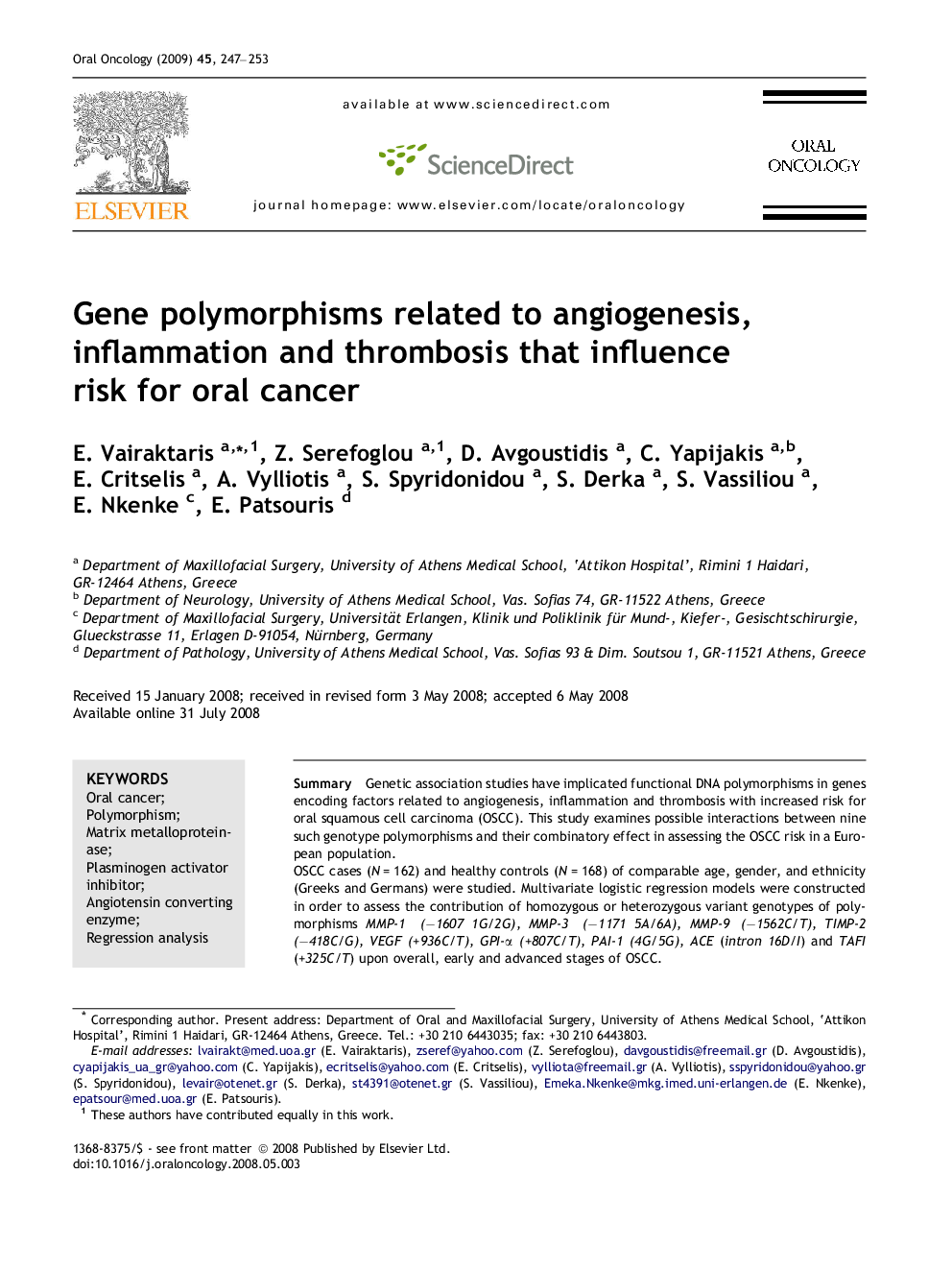| Article ID | Journal | Published Year | Pages | File Type |
|---|---|---|---|---|
| 3165671 | Oral Oncology | 2009 | 7 Pages |
SummaryGenetic association studies have implicated functional DNA polymorphisms in genes encoding factors related to angiogenesis, inflammation and thrombosis with increased risk for oral squamous cell carcinoma (OSCC). This study examines possible interactions between nine such genotype polymorphisms and their combinatory effect in assessing the OSCC risk in a European population.OSCC cases (N = 162) and healthy controls (N = 168) of comparable age, gender, and ethnicity (Greeks and Germans) were studied. Multivariate logistic regression models were constructed in order to assess the contribution of homozygous or heterozygous variant genotypes of polymorphisms MMP-1 (−1607 1G/2G), MMP-3 (−1171 5A/6A), MMP-9 (−1562C/T), TIMP-2 (−418C/G), VEGF (+936C/T), GPI-α (+807C/T), PAI-1 (4G/5G), ACE (intron 16D/I) and TAFI (+325C/T) upon overall, early and advanced stages of OSCC.Four out of nine polymorphisms affecting PAI-1, MMP-9, TIMP-2 and ACE expression contributed significantly in OSCC prediction in the various logistic regression models.Based on these findings and previous reports, possible interactions of the implicated factors leading to OSCC development, as well as an algorithm of risk estimation are discussed.
